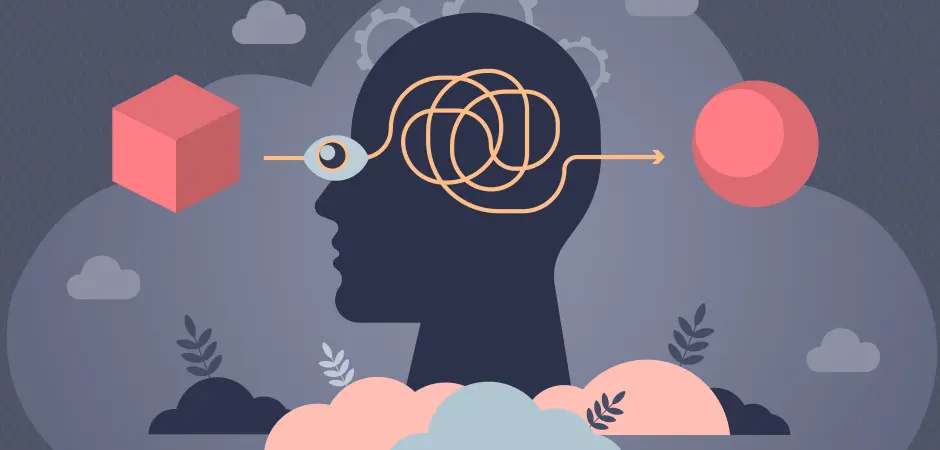Online gambling, a rapidly growing digital phenomenon, merges the thrill of betting with the convenience of the internet. This landscape, however, is fraught with psychological traps known as cognitive biases. These mental shortcuts, while often useful in everyday life, can distort our perception of risk, reward, and probability in the context of gambling.
Recognizing and acknowledging the influence of cognitive biases is the first step towards responsible gambling. It allows players to make decisions based on logic and information, rather than being swayed by hidden mental tendencies.
What Are Cognitive Biases?

Cognitive biases are psychological tendencies that affect our judgments and decisions. These biases are hardwired into our brains, serving as mental shortcuts that help us process information quickly. However, in complex scenarios like online gambling, these shortcuts can lead to flawed reasoning. Cognitive biases can make us overconfident, overly pessimistic, or blind to certain probabilities. For gamblers, understanding these biases is crucial. It enables them to recognize when their thinking might be skewed and helps them to make more rational choices.
Availability Heuristic
The availability heuristic is a cognitive bias where individuals estimate the probability of an event based on how easily they can recall similar instances. In the realm of online gambling, this bias can have a pronounced effect, especially when considering no deposit bonuses. For example, a gambler might remember a recent big win vividly and, as a result, overestimate their chances of winning again. The availability heuristic can make events that are memorable—whether for good or bad reasons—seem more frequent than they actually are.
Confirmation Bias
Confirmation bias is a cognitive bias that leads us to favor information that confirms our existing beliefs while ignoring evidence that contradicts them. In the context of online gambling, this can manifest in several ways. Gamblers might selectively remember their wins over their losses, reinforcing the belief that they are skilled or lucky. They may also interpret near-misses as evidence of imminent success, even when statistically, these events are insignificant. The challenge lies in recognizing and questioning our own preconceived notions, stepping back to view our gambling behavior objectively.
Loss Aversion

Loss aversion is a principle in behavioral economics stating that people are more sensitive to losses than to gains of the same magnitude. This bias is particularly potent in online gambling, where the pain of a loss can overshadow the pleasure of a win. Gamblers experiencing loss aversion may exhibit irrational behavior, such as continuing to bet in an attempt to recover lost money, a strategy that often leads to further losses. This aversion to loss can also make gamblers overly cautious, potentially missing out on advantageous betting opportunities. Understanding and acknowledging this bias can help gamblers maintain a balanced perspective.
Anchoring Bias
Anchoring bias occurs when an individual relies too heavily on an initial piece of information (the “anchor”) to make subsequent judgments. In online gambling, this can manifest in several ways. A gambler might place undue emphasis on the starting odds, allowing them to disproportionately influence their bets regardless of subsequent information. Conversely, a high initial loss can set a negative anchor, leading to overly cautious or defeatist betting behavior.
The Gambler’s Fallacy
The gambler’s fallacy is the mistaken belief that past events can influence the likelihood of future events in independent situations. In online gambling, this often manifests in the belief that a win is “due” after a series of losses, or vice versa. For example, if a player experiences a losing streak in a game of chance, they might believe that they’re more likely to win the next round, even though the odds remain the same. This fallacy can lead to a false sense of predictability and control, prompting gamblers to make irrational decisions based on perceived patterns that don’t actually exist.
Sunk Cost Fallacy

The sunk cost fallacy is a cognitive bias where individuals continue a behavior or endeavor due to previously invested resources (time, money, effort), rather than current rational analysis. In online gambling, this can lead players to continue gambling in an attempt to recover losses, ignoring the fact that past losses are irrecoverable and should not impact future decisions. This fallacy can lead to a dangerous cycle of chasing losses, where gamblers escalate their bets in a futile attempt to break even. Recognizing the sunk cost fallacy involves separating past investments from present decision-making.
Overconfidence Bias
Overconfidence bias is the tendency to overestimate one’s abilities or the accuracy of one’s knowledge. In the context of online gambling, this can lead players to believe they have more control over the outcome of a game than they actually do. This overconfidence can stem from a variety of sources, such as a few initial successes or a belief in personal luck or skill. The danger lies in gamblers taking on greater risks based on this inflated sense of control, leading to potentially significant losses. Recognizing overconfidence bias involves maintaining a realistic assessment of one’s gambling skills and the role of chance in the outcomes.
Recency Bias
Recency bias is the tendency to give undue weight to recent experiences over historical data. In online gambling, this bias can skew a player’s perception of their chances of winning. For example, if a gambler has recently experienced a series of wins, they might feel that they are on a ‘hot streak’ and overestimate their likelihood of future wins. This bias can lead to irrational betting decisions, where gamblers base their strategies on recent outcomes rather than on a rational analysis of probabilities.
How to Overcome Cognitive Biases

Overcoming cognitive biases in online gambling requires a combination of self-awareness, disciplined thinking, and practical strategies. One effective approach is to keep a gambling diary, recording bets, outcomes, and the thought processes behind each decision. This can help identify patterns of biased thinking. Setting strict limits on betting amounts and time spent gambling can also provide a structure that counteracts impulsive, bias-driven decisions. Additionally, educating oneself about the mathematical and probabilistic aspects of the games can foster a more rational approach to gambling.
Conclusion
Cognitive biases play a significant role in online gambling, often leading players to make decisions that are not in their best interest. From the overconfidence bias to the gambler’s fallacy, these psychological tendencies can profoundly impact gambling behavior. This self-awareness, combined with disciplined betting strategies and a respect for the role of chance, can lead to more responsible and enjoyable gambling experiences.









